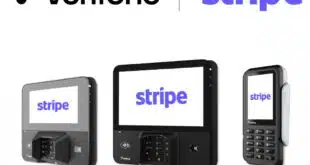Just because merchants have until next October to install terminals capable of processing chip cards and avoid shouldering liability for counterfeit card transactions doesn’t mean most of them will have done so by that date. Many experts, and a number of merchants themselves, have made that point. But major terminal companies, too, expect it could well be years beyond October 2015 before chip-enabled terminals become ubiquitous at the point of sale.
Take Ingenico S.A., one of the world’s largest point-of-sale terminal makers. “All of the top-tier U.S. merchants will be EMV-capable or very close [by October] but when you move down [to lower tiers] there’s likely to be a considerable lag,” Rod Hometh, senior vice president for market development at the company, tells Digital Transactions News. “It will probably be a couple years from now” before these smaller merchants adopt EMV terminals on a mass basis, he adds.
EMV refers to the Europay-MasterCard-Visa chip card standard already widely adopted in Europe, Canada, and Asia. Visa Inc. and MasterCard Inc. have set an October 2015 deadline for U.S. merchants to adopt the standard or risk assuming losses for fraudulent transactions. But many small merchants remain unaware of the impending liability shift, and even those that know of it in many cases argue the cost of fraud losses for them is less than the cost to retrofit their point of sale and train cashiers for EMV.
Hometh adds another obstacle to widespread merchant adoption: long wait times for terminal-software certifications by acquirers and the card networks. “The lag at this point is certification queues,” he says. “The queues are starting to get very long. Processors can’t keep up.”
Ingenico on Tuesday introduced a new family of EMV-capable POS devices, known as Telium Tetra, which feature a new operating system and a marketplace of loyalty, marketing, and other apps. These terminals will roll out in Europe first and will become available in the U.S. market in the second half of next year.
While Hometh predicts most small merchants won’t be ready by October, he hesitates to estimate what percentage of the U.S. merchant base will be EMV-enabled by that crucial date. “It’s too much of a guessing game with smaller merchants,” he says.
As if to reinforce that point, factors already in play could actually move small merchants to adopt EMV sooner rather than later, despite their current reservations about the technology. One of these factors is Apple Pay, the highly publicized mobile-payment service from Apple Inc. that went live last month.
This is a wild card because it’s hard to predict how much pressure consumers—especially Apple enthusiasts—might exert on merchants to install terminals capable of processing Apple Pay transactions. These terminals, which would have to be able to read near-field communication signals from consumers’ iPhone 6 smart phones, would in nearly all cases also be capable of processing chip cards.
Similarly, consumers frightened by the rash of major merchant breaches in recent months might also push local merchants to adopt EMV after hearing the technology offers more security, Hometh says. “That pattern has repeated itself” in other national markets that have embraced EMV, he says.
But even if merchants continue to lag, Hometh has a word of warning for independent sales organizations: get on the EMV bandwagon. Those ISOs that don’t adopt a consultative role with clients about EMV and its benefits, he says, risk losing out to savvier ISOs and independent software vendors that are capable of helping merchants navigate the maze of EMV adoption.
“Those ISOs that are not consultative enough will fall by the wayside,” he argues. “If I were an ISO, I would see EMV as a real opportunity.”





